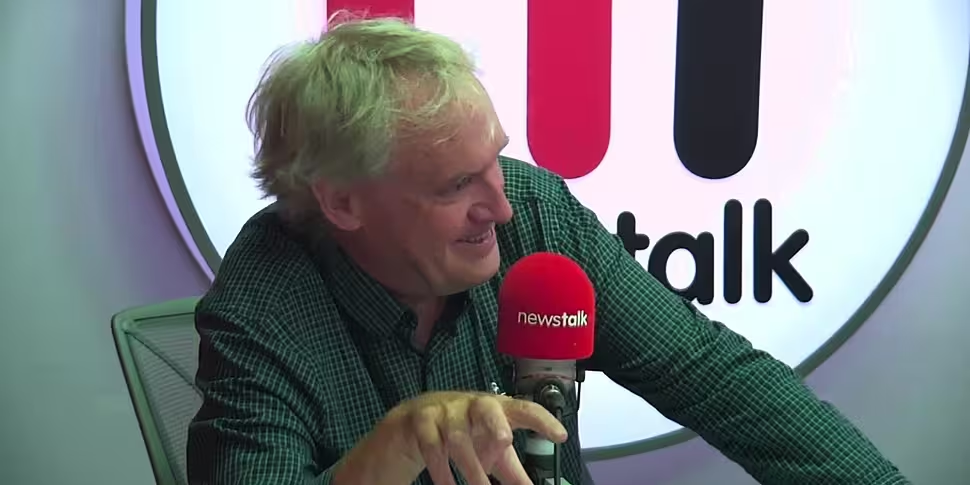A US-based biosciences company is developing medicines that can enter people's bodies and be programmed to target specific areas.
Senda is working to create the first-ever comprehensively programmable drugs.
Professor Luke O'Neill, who was recently appointed as Chief Scientific Officer at Senda, said this could also be applied to COVID-19 vaccines.
He told The Pat Kenny Show the medicines could become more efficient.
"This is all about getting the medicines to work even better using clever technology," he said.
"This is all about getting the drug to the place you want it to go.
"For example, if you take paracetamol it goes all over your body - what if it goes to your elbow or your head?
"You're programming into the medicine, like an address, I suppose effectively is the goal here".
How does it work?
Prof O'Neill said drugs can be put inside tiny particles.
"They're using things called nanoparticles, tiny little particles; you stick the drug inside the particle and particle has an address on it.
"It brings it to exactly where you want, like the liver, pancreas or the lungs.
"That means lower dose, for a start, it might mean patients respond better because it's going to where you want it to go.
"These nanoparticles... are tiny little lipid bags, basically; you load them up with the drug and then you take it orally or you inject it.
 An illustration of COVID-19
An illustration of COVID-19"It finds in your body where the injury is, if you like.
"Remember that science fiction show that they had a submarine in the bloodstream? It's kind of like that, in a way".
He said this could also help with people's immune systems, using cancer as an example.
"Can you get the drug to go the the tumour? Remember that would mean less side effects," he said.
"Let's say you put chemo in the particle: it just goes to the tumour [and] that means the nausea, the hair loss mightn't be evident.
"If you get the immune system specifically to be targeted to beat up the tumour, again that will be a very powerful thing to do".
COVID
It is also thought this could help with the delivery of COVID-19 vaccines.
"Senda have done this; they've stuck the Moderna vaccine into this nanoparticle and that got... a stronger response," Prof O'Neill said.
"In animals, not yet in humans - so they souped up the power of the vaccine.
"Why is that useful: it might stop transmission.
"The big unanswered need with these vaccines is do they stop transmission?
"They stop severe disease, as we know, but can you stop spreading the virus?
"That hasn't been achieved yet - so using these more powerful nanoparticles you might actually achieve that."
'Specific particles'
Prof O'Neill said this could see the nanoparticles 'addressed' to the areas affected by the virus - such as the throat, nose and lungs.
"That's all in front of us... you may have specific particles for those parts of the body," he said.
"If you get the nose to respond, that'll stop the thing spreading... but the main place it goes is in the immune system to make the antibodies and make the T-cells.
"They're called lymph nodes, is where this happens, and again these particles go to the lymph node where the action is,
"Now the immune system really kicks off and you get a fantastically strong response," he added.









